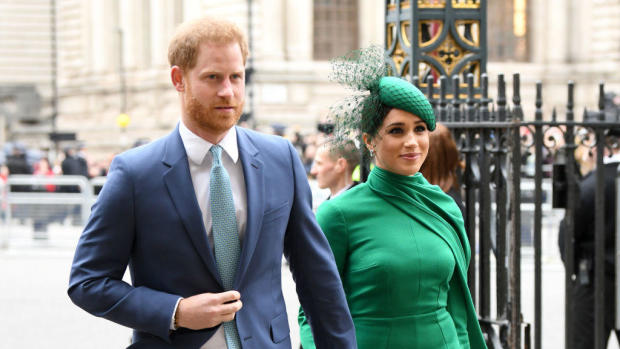[ad_1]
London — Prince Harry has lost a bid to bring a legal challenge against the U.K. government over its refusal to allow him to pay privately for personal police protection for himself and his family when the estranged royals visit Britain.
Harry and his wife Meghan, the Duke and Duchess of Sussex, gave up their roles as senior “working” members of the royal family in 2020, soon after which they settled in California. That year, the Executive Committee for the Protection of Royalty and Public Figures (RAVEC), made up of officials from the government, London’s Metropolitan Police Service and the royal household, decided the Sussexes no longer qualified for special police protection in the U.K.
Harry had argued through his lawyers at Britain’s High Court that a formal judicial review process should assess the government’s decision to refuse his offer to have the personal protection order restored at his expense.
“RAVEC has exceeded its authority, its power, because it doesn’t have the power to make this decision in the first place,” Harry’s lawyers told the court, according to CBS News’ partner network BBC News.
In a written judgment on Tuesday, however, High Court Justice Martin Chamberlain denied Harry permission to bring a judicial review over RAVEC’s decision, describing the committee’s actions as “narrowly confined to the protective security services that fall within its remit.”
Harry’s legal team had argued in court that there were provisions in U.K. law that allowed for private payment for “special police services,” and as such, “payment for policing is not inconsistent with the public interest or public confidence in the Metropolitan Police Service,” according to the BBC.
In his ruling, Chamberlain also rejected that argument, saying the security services Harry was seeking were “different in kind from the police services provided at (for example) sporting or entertainment events, because they involve the deployment of highly trained specialist officers, of whom there are a limited number, and who are required to put themselves in harm’s way to protect their principals.”
“RAVEC’s reasoning was that there are policy reasons why those services should not be made available for payment, even though others are. I can detect nothing that is arguably irrational in that reasoning,” Chamberlain wrote.
While the Duke of Sussex has lost his bid to legally challenge RAVEC’s decision on whether he can pay personally for police protection, there remains a separate, ongoing legal case about whether the prince should have his state security restored. Prince Harry was granted permission from the courts to proceed with that case and it is expected to come to trial, but the timing remains unclear.
The cases about his personal protection when he visits Britain are just two of the legal battles Prince Harry is currently fighting.
The duke is also part of a small group of celebrities alleging unlawful information gathering by Britain’s tabloid press. Harry and Meghan have filed at least seven lawsuits against U.S. and U.K. media outlets since 2019, according to the U.K.’s Sky News.
[ad_2]
Source link

